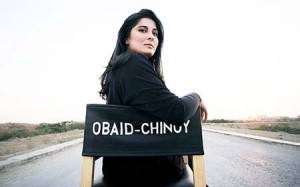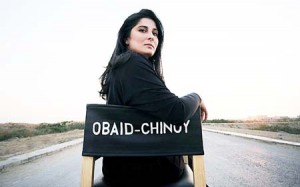The Telegraph
Philip Sherwell
 Saba Qaiser’s father put his hand on the Koran and swore that he would not harm her if she came home so that her new husband could collect her “with honour”.
Saba Qaiser’s father put his hand on the Koran and swore that he would not harm her if she came home so that her new husband could collect her “with honour”.
The 19-year-old had just eloped but reluctantly agreed, trusting his word. Instead, her father and uncle drove her to a riverbank, beat her and put a pistol to her forehead.
She titled her head at the last minute and the bullet raked through her face from eye to lips, knocking her unconscious. The two men stuffed her limp body into a gunny bag and threw it into the river, then drove off, confident that they had restored the family’s “good name”.
But remarkably, Saba did not end up as another of the largely forgotten dead in Pakistan’s “honour killing” epidemic. She came round in the water, hauled herself ashore and found rescuers.
Her harrowing survivor’s story is now the subject of new documentary nominated for an Oscar at Sunday’s Academy awards. And whether the film wins the top prize or not in Los Angeles, the impact of A Girl in the River: The Price of Forgiveness has already been profound.
The exposure for the film has led to an unprecedented debate about the practice of “honour killings” in the conservative male-dominated Muslim society.
In a crucial breakthrough, Nawaz Sharif, the prime minister, has now pledged to “to rid Pakistan of this evil” by backing a law to end a legal loophole for murderers.
Mr Sharif will use his office in Islamabad to host the Pakistan premier of the film Monday. In a meeting with the film-maker Sharmeen Obaid-Chinoy, he promised to push through legislation that would mean killers can no longer escape prosecution by being “forgiven” for their crime by a relative.
“I am delighted that A Girl in the River has started a national discussion,” Ms Obaid-Chinoy told The Telegraph.
“For too long, honour killings have not been regarded as a crime in Pakistan because nobody is prosecuted or jailed. People don’t see it for what it is, cold-blooded murder, they try to explain it away as a matter of religion or tradition.
“The screening is a fantastic gesture by the prime minister and he has told me he will back legislation to get rid of forgiveness as way to avoid prosecution.”
The government estimates there are at least 1,000 such murders a year – about three a day – but some campaigners believe the figure is significantly higher.
Thousands more are committed elsewhere across the Islamic world and in Muslim communities in Britain and North America. The killers often then seek refuge back in Pakistan.
They are murdered by their male relatives on the grounds of defending family “honour” for reasons that can include refusal to enter an arranged marriage, a relationship that lacks approval, sex outside marriage, dressing inappropriately or even being a rape victim.
Under current Pakistani law, a victim’s family can forgive the killers to end a prosecution – and in nearly all cases, the relatives of the dead woman will also be the relatives of the murderer.
Pakistan’s political leaders have long shied away from tackling the sensitive issue for fear of a religious backlash, even though there is no Koranic justification for the practice, as the new film makes clear.
Saba’s “crime” in the eyes of her relatives was that she ignored their wishes and eloped to marry her boyfriend, a factory worker from a poorer background.
“I wanted to tell the story of a survivor so that we could hear from a girl who had gone through this, to hear the voice of a victim,” said Ms Obaid-Chinoy, 37, the mother of two young daughters.
“So when I read about Saba’s case in the newspapers, I went straight to the hospital. She is a remarkable and very brave young woman. She wanted to tell her story and we started filming there and then.”
Saba was determined from the start to fight the pressure to grant forgiveness and instead to pursue the prosecution of her father and uncle. “I will fight this case,” she declares with a strength and poise unusual for many young women in Pakistan. “I will not forgive.”
But just as striking is the chilling defiance of her father as he is filmed behind bars after his arrest, without an iota of regret, remorse or doubt about his action.
“Whatever we did, we were obliged to do it,” he states from behind bars. “She took away our honour. If you put one drop of p*ss in a gallon of milk, the whole thing gets destroyed.
“That’s what she has done. Destroyed everything. For respect and honour, I am ready to spend my life in jail.”
Ali Akbar, a police investigator with a long religious beard, meanwhile emerges as one of the most passionate critics of the system.
“Islam teaches nothing about honour killing,” he says. “God has given her the right to choose freely. Yet on the simple matter of marrying the person she loved she had to pay such a heavy price.”
But for all their resolve, Saba and her young husband eventually succumb to the pressure of elders, including her new brother-in-law, and she reluctantly and agonisingly goes to court to confirm her “forgiveness” – to the frustration of Inspector Akbar.
“The message of forgiveness is that this is no big deal,” says the policeman. “You can kill and go free.”



